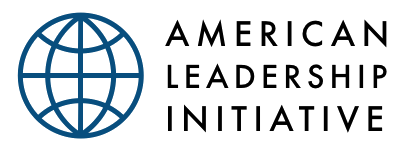ALI Webinar: Discussion with Congressman Brad Schneider (D-IL)
/Click here to watch the recording of the webinar.
There are three phases associated with the pandemic, all influencing international relations and trade: emergency phase, mitigation phase until there is a vaccine, and recovery phase.
The pandemic has surfaced a failure of U.S. preparedness, a breakdown of institutions, domestically and internationally, and a lack of U.S. leadership. We must come out of this with a commitment to strengthen credible U.S. leadership around the world.
The pandemic has also shone a light on cracks and weaknesses in our global institutions, providing us an opportunity to learn from this situation and strengthen our global institutions, as opposed to simply pulling out or defunding them.
The pandemic has created an “every country for itself” environment, with countries imposing export restraints on PPEs, medical devices and other essential items. Many now believe that global trade must improve beyond simply “just in time delivery”, which has resulted in problems in the face of the pandemic. How should the U.S. address the need to produce critical products in the U.S. while also sustaining the value of international trade? The U.S. must engage in careful cost-benefit analysis in deciding what to onshore, while resisting the temptation to become overly insular. We need to add capacity in the U.S. where it makes sense but work to maintain an open global trading regime.
There is a need for re-globalization of trade—shifting the emphasis to cooperation, not just competition. Trading with the rest of the world around trade is necessary – the U.S. will not benefit from becoming unnecessarily and blindly self-sufficient. Businesses and governments must prepare for an eventual return to more normalized trade, however the return to normalized trade will result in bottlenecks, inventory issues and disrupted trade flows, and businesses must be understanding, patient and nimble. As a result of the virus, the world must restore and rebuild global supply chains to reinforce interconnectivity, which has declined.
China’s self-serving narrative regarding COVID-19 is a problem as they seek to gain a reputational leg up with the developing world. This crisis has provided an opportunity for China to influence the vulnerable. As the U.S. pulls back – the Chinese are filling the void with their approach, capital and influence.
The pandemic has resulted in more of the American public believing that international trade, and international collaboration are more of a threat than an opportunity. We must also do a better job of explaining to the public how U.S. leadership will benefit their lives, while understanding that the U.S. cannot resume its role as a global leader without improved and apparent domestic benefit. The value (social and financial) of international trade must be enjoyed by people across the United States.
COVID-19 is more than a threat to our personal or national health – we must take the lessons learned to improve trade and global collaboration, uniting with others internationally to make the world a better place – even when it is difficult.



